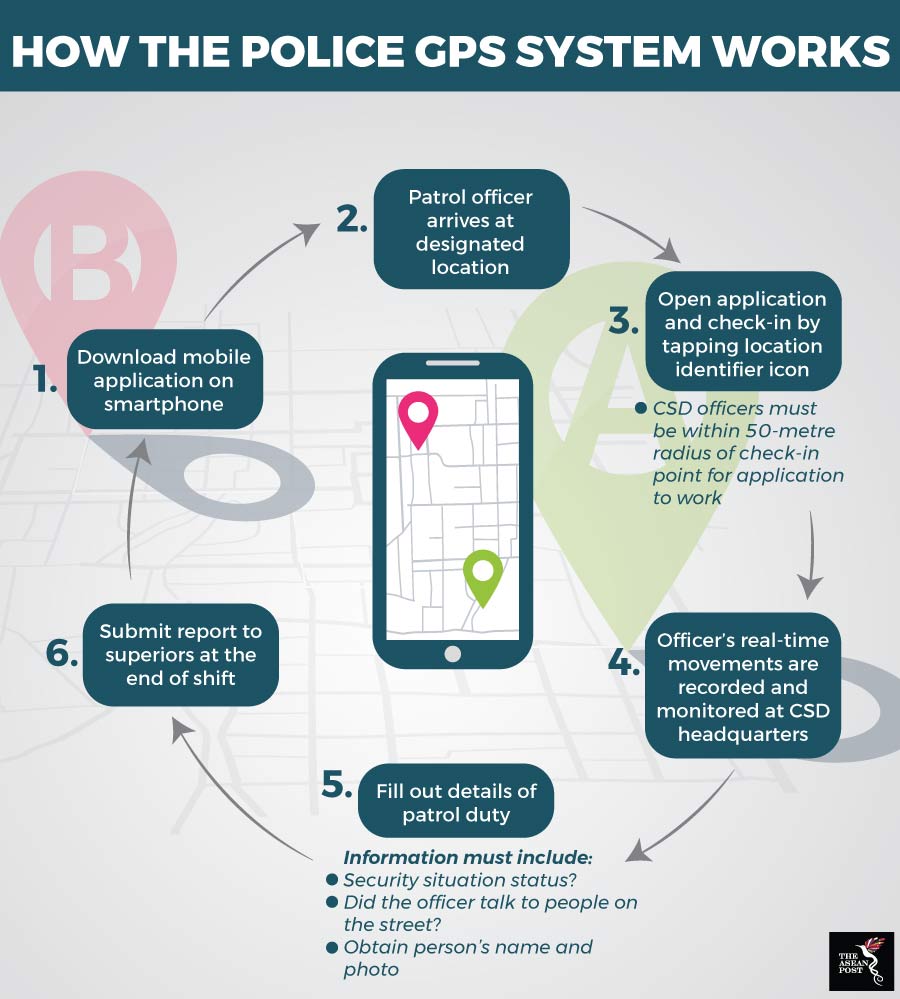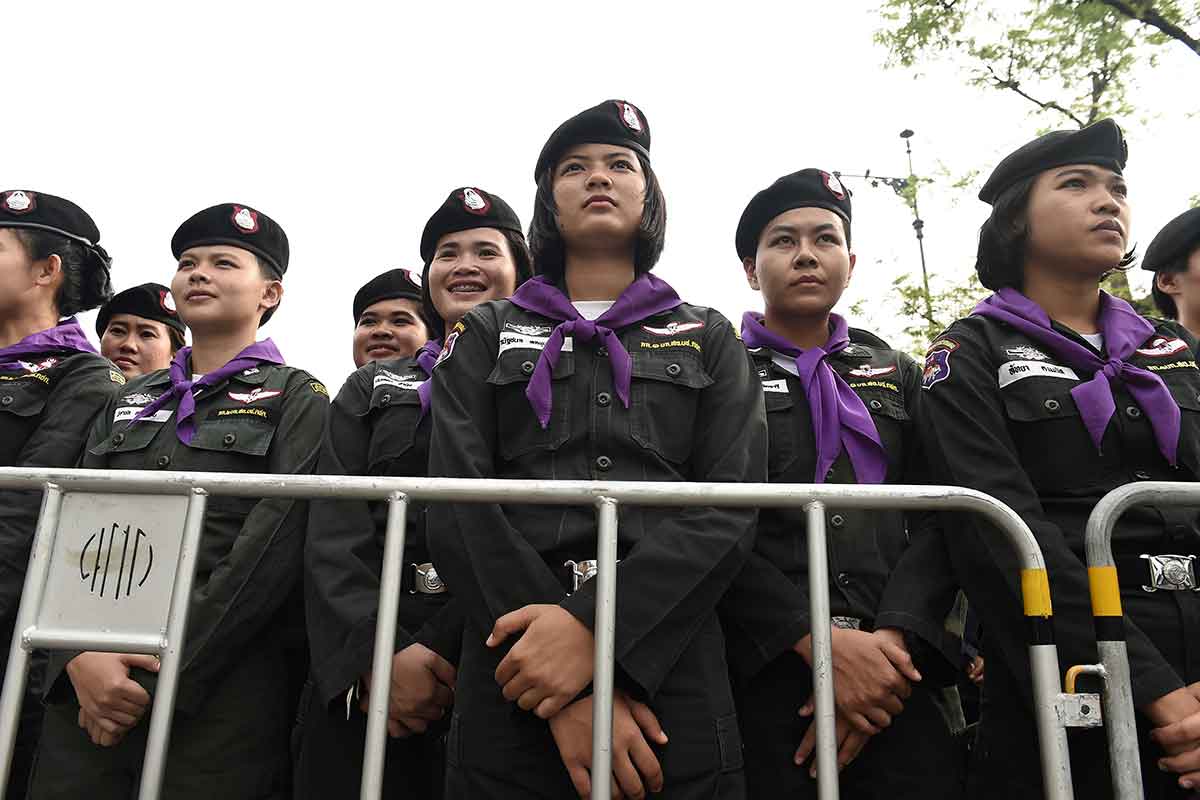Thai police seem to be embracing the intricacies of the Fourth Industrial Revolution, or Industry 4.0. Recent reports revealed that one of the ways the force is doing this is through utilising global positioning system (GPS) technology in order to tackle the issue of some errant police officers who are not patrolling crime-prone areas on their beat.
GPS technology was introduced after the Crime Suppression Division (CSD) found that there was a way to “hack” the previous monitoring system. Previously, special “red boxes” had to be installed in areas that needed an increased level of policing. Police officers would scan a QR code housed within the red box to prove that they were physically present on patrol.
However, some officers found a way around this by taking a picture of the QR code, going elsewhere, and then scanning that code from wherever they were to give the impression that they had completed their rounds.
This workaround was eventually brought to the attention of the CSD, who have now implemented real-time GPS tracking technology to keep tabs on police officers. The technology was trialled in Bangkok recently as a replacement for the red boxes and the CSD expects it will be progressively implemented not only in crime hot spots, but in all police precincts in the near future.
How it works
Police officers, either on regular patrols or those who have been assigned to conduct surveillance operations, are expected to download the GPS system which comes in the form of a smartphone application. Once the officer arrives at the designated location, he or she must open the application and check-in by tapping a location identifier icon.
Officers' movements while on patrol are then recorded and monitored live at the CSD headquarters.
"The patrol work is monitored in real time so no one will be able to lie to his superior anymore," said CSD commander Jirabhop Bhuridej.
Police officers are required to be within a 50-metre radius of the check-in point to activate the check-in icon on their smartphones. They then have to fill out details of their patrol duty in the app.
Information the officers must provide include whether the security situation is rated as normal or not. They must also fill in whether they have talked to people on the street around the check-in location to get a clearer picture of any criminal activity in the area.
After each conversation in the area, whether with a suspect or a member of the public, officers are required to obtain the person's name and take their photo via the app should these details be needed for evidence.
Security officers who head patrol teams must then submit the report to their superiors at the end of each shift. The CSD will also receive a copy. The report compiles details of the assignment, the number of officers involved, the distance covered and photos taken during the patrol.
 Source: Various sources
Source: Various sources
"I've stressed the importance of stopping patrol vehicles and talking to the people, as this is a way of gaining a rapport with the community. It's the people on the ground who will lend a helping hand when it comes to security surveillance," said Jirabhop.
He also explained that in some areas, the patrol must be carried out at particular times of the day. For example, in Soi Lat Phrao 101 where statistics show the crime rate usually peaks between 7 p.m. and 8 p.m., the check-in must occur during these times.
The new system also automatically sends an SMS to people who require police protection. Much like Uber or Grab, the SMS will let them know that an officer has arrived and “checked-in” outside their home.
The next phase
For the next phase of the project, the CSD is looking into establishing a “Real Time Crime Centre” to manage police patrols and crime reports nationwide. The centre will coordinate across precincts to prevent any overlap of work and compare the relative productivity of each division's patrol work.
According to reports, there are 1,482 police stations across Thailand and each utilises at least 30 red security check-in boxes. It costs the Royal Thai Police approximately US$350,000 to buy and install these red boxes and that does not include the cost for the check-in book placed in the box.
Pratchaya Kammalatphithak, Head of CSD’s patrol section says that so far, officers have responded positively to the new system and that no bugs or teething problems have been reported with the check-in app.
The GPS system is in line with the country’s Thailand 4.0 vision and should go a long way in not only preventing police officers from becoming too lax, but also preventing crime and maintaining a high-level of integrity within the police force. The CSD of Thailand can hold their head high as a result of this positive initiative.
Related articles:
Is Thailand 4.0 coming to fruition?
